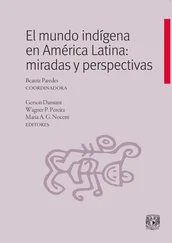1 ...8 9 10 12 13 14 ...44
Eudemia: Story Outline and Themes
Story Outline
Eudemia is set around 31 CE in the immediate aftermath of the arrest and execution of Lucius Aelius SejanusSejanus, Lucius Aelius, commander of the Praetorian Guard, who was accused of trying to usurp power from TiberiusTiberius while the emperor ruled in absentia from Capri (an event known as the Conspiracy of Sejanus). The protagonists, Flavius VopiscusFlavius Vopiscus Niger (Gian Vittorio Rossi?) Niger and Paulus AemiliusPaulus Aemilius Verus Verus, flee Rome by sea but become shipwrecked on an island named Eudemia located off the coast of Mauritania. The story represents Flavius Vopiscus Niger’s first-person account of what the two Romans see and hear on the island.
As GiachinoGiachino, Luisella observes, the first seven books of Eudemia reflect a week on the island, with each book describing a single day.1 The action in the eighth book (the conclusion of the 1637 editio princeps ) describes the two protagonists’ voyage to a neighboring island and takes place over an unspecified period of time. The ninth book (of the two added to the 1645 edition) takes up the action after the protagonists have lived on the neighboring island for an indeterminate period.
Book One:Two Romans, Flavius VopiscusFlavius Vopiscus Niger (Gian Vittorio Rossi?) Niger and Paulus AemiliusPaulus Aemilius Verus Verus, fleeing the aftermath of the conspiracy of SejanusSejanus, Lucius Aelius, become shipwrecked on the island of Eudemia. They are befriended by GalloniusGallonius (Gabriel Naudé?), steward to PlusiusPlusius (Alessandro Damasceni Peretti di Montalto), the wealthiest man on the island, who becomes their guide. They learn from Gallonius that the island had been colonized two centuries earlier by the survivors of a trireme from the fleet of ScipioScipio Africanus Africanus, which had been blown off course as it was returning from the Second Punic War. After generations of intermarriage, everyone on Eudemia now speaks Latin. The two Romans learn that the island is governed by ruling men called dynasts ( dynastae ), whom they witness being ferried about the city in opulent carriages. Gallonius brings them to the home of Dynast BibulusBibulus (Francesco Barberini?), who keeps a menagerie of animals. On their way back to Gallonius’s house, the three men narrowly avoid being struck by a carriage carrying a noblewoman named PasicompsaPasicompsa, widow of a dynast, prompting a digression on the insatiable libido of women who prey upon naive young men.
Book Two:GalloniusGallonius (Gabriel Naudé?) takes the two Romans to visit the splendid gardens of one of the dynasts. Next they visit a friend of Gallonius, who has been taken ill and is being cared for by a woman, named NannaNanna, whom the Romans learn is a cunning and deceitful prostitute after the man’s money. They hear the story of how this woman had, with the help of a quack doctor, cleverly tricked a merchant into thinking he had injured her, for which harm she attempted to obtain monetary recompense. When the story concludes, the three men make their way to the home of Dynast PlusiusPlusius (Alessandro Damasceni Peretti di Montalto). While lunch is being served to Plusius’s guests, the two Romans have the opportunity to observe the dynasts’ dress and to eavesdrop on their conversations. The Romans are then invited to take lunch in the beautiful gardens where they are joined by a raucous group of guests. After the feast has concluded, Gallonius is summoned to a magistrate’s chambers to aid a man named ToxillusToxillus, who has been dragged off to court. There they hear the story of a prostitute, allegedly a witch, who stands accused of using magic to attack the magistrate’s lictors. After the woman is cleared of wrongdoing, Gallonius persuades the magistrate to drop the charges against Toxillus. On their way home, the three men hear the story of AsteriusAsterius (Giovanni Battista Stella?), who, by a clever play on words, gets revenge on the magistrate for an injustice.
Book Three:GalloniusGallonius (Gabriel Naudé?) takes the two Romans to visit a friend of his, who is anguished about being old and close to death. After an unsuccessful attempt to comfort his friend, Gallonius continues to lead his two guests on a tour of the city. In one of the forums, they hear the story of a rag seller who has left his wife under the protection of men who he thinks are bodyguards, but who are actually vying for her amorous attention. Gallonius promises his guests that, after lunch, he will take them to visit a literary academy. They spend the afternoon in the company of the elite and learned members of the academy listening to speeches and poems. That night they are awoken out of their sleep by cries coming from the hospital, where the staff is spending a miserable night on account of the explosive effects of bad wine.
Book Four:The three men receive news that the eminent Dynast AlexanderAlexander (Alessandro Damasceni Peretti di Montalto) has died. Alexander’s greatness is contrasted with the story of another man, despised by all, who died and was buried in a tomb—but the man turned out not to be dead. At the conclusion of the story, the three men return to GalloniusGallonius (Gabriel Naudé?)’s house, where they overhear the household servants engaged in gossip. During lunch, the Romans engage with a philosopher in a debate about the chastity of LucretiaLucretia. That afternoon, they head out from Gallonius’s house and encounter a funeral for a certain young man named PhilotasPhilotas. The Romans hear the sad tale of two star-crossed lovers, Philotas and OlindaOlinda. The two Romans then witness the funeral of Dynast Alexander. Before dinner they are introduced to a ship’s captain, who will take them the following day to a neighboring island. As they head back to Gallonius’s house, they encounter a man who claims to be a poet superior to VirgilVirgil. They next encounter a tedious philosopher, who instructs them in his abbreviated method of learning rhetoric.
Book Five:The two Romans visit the senate house to see the poliarchs (senators) in action hearing complaints from fishmongers, poultry sellers, and other merchants, and administering justice. On their way they learn about the common practice of husbands turning a blind eye to their wives’ lovers if some benefit accrues to them in the form of lavish gifts. The Romans are invited by the poliarchs to join them for lunch. At the conclusion of the banquet, the men admire the art in the senate house. On their way home, they meet AridusAridus (Gian Vittorio Rossi?), who recounts stories about various people in Eudemia: a man whose son and daughter are, respectively, a handsome and accomplished troublemaker and a famous courtesan; a thieving banker named LycoLyco; and a miserly cloth merchant, named HarpaxHarpax, and a dishonest banker, named Septimus PleusippusSeptimus Pleusippus, both of whom defraud their clients and creditors. Next, they hear from IberusIberus about a clever plan to ensure his immortality. When they return to GalloniusGallonius (Gabriel Naudé?)’s house, the two Romans chastise him for being angry at his ungrateful master, because he should know better than to expect anything but ingratitude from noblemen. Gallonius then recounts the woeful tale of Nicius RufusNicius Rufus (Gian Vittorio Rossi), a long-suffering secretary to a miserly dynast.
Book Six:Because the two Romans are in need of money, GalloniusGallonius (Gabriel Naudé?) accompanies them to the forum to meet with ZanchaZancha the broker in order to sell some of their valuables before setting sail to the neighboring island. Zancha recounts the story of the drunkard carpenter BaldocciusBaldoccius, whose daughter, TensaTensa, fools both him and her mother, AntinaAntina, into leaving her at home alone, so she can meet freely with her lover, PamphilusPamphilus. On their way home, the two Romans encounter a solemn religious procession and learn that the members of the ruling class of Eudemia hold their horses and other pets in higher esteem than they do their fellow man. After breakfast they rush to board the ship. Aboard the ship they meet a painter named BallioBallio who, with his wife, wants to set sail with them, and a moneylender who rails against the wife because she was once a whore. Ballio then recounts the story of a Cynic philosopher named LyusLyus, whose sister, a chaste maiden, has been on pious pilgrimages all over the world. Her reputation precedes her, and noblewomen throughout the land compete to host her in their homes and in their beds, until a rich widow unmasks her true identity.
Читать дальше












